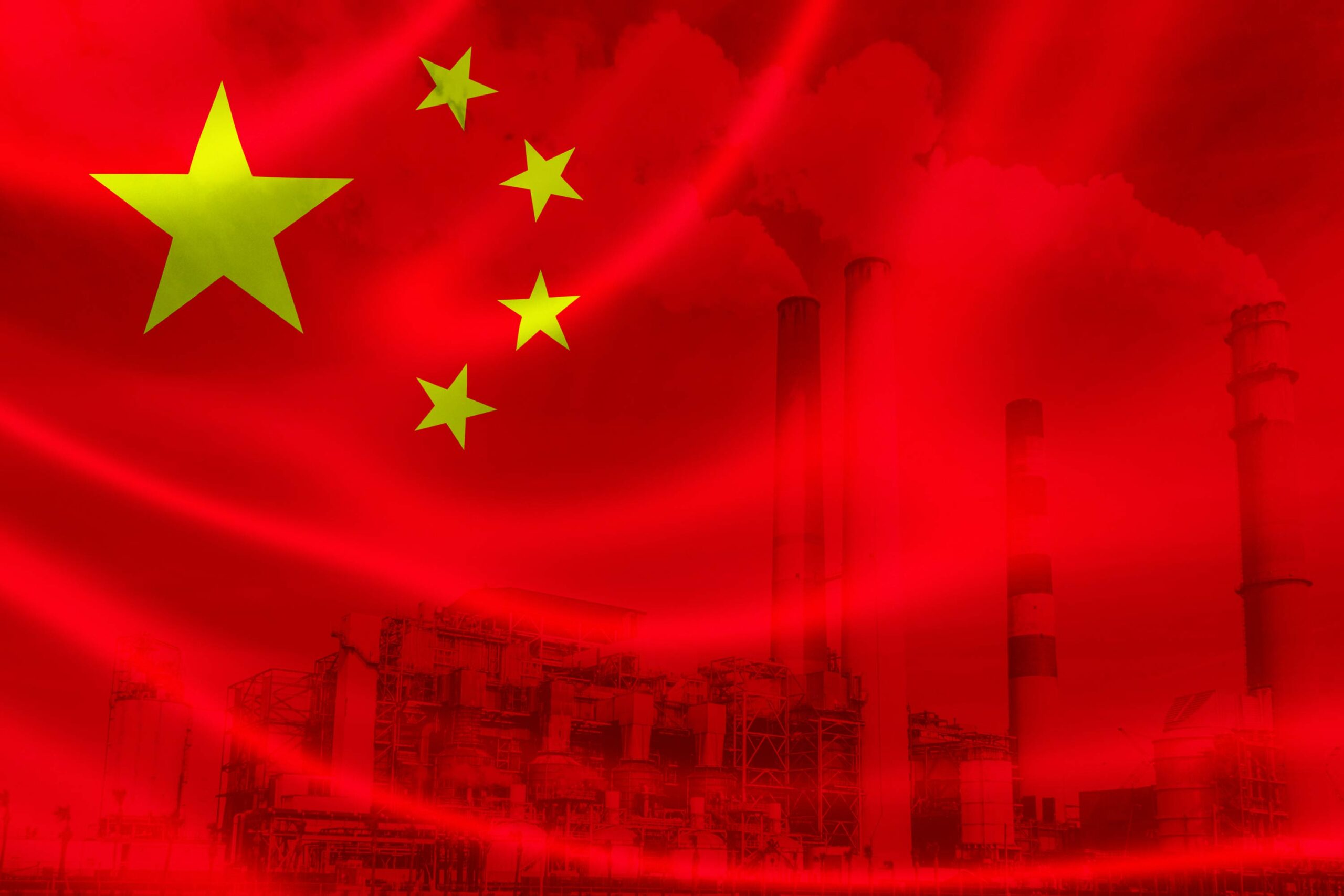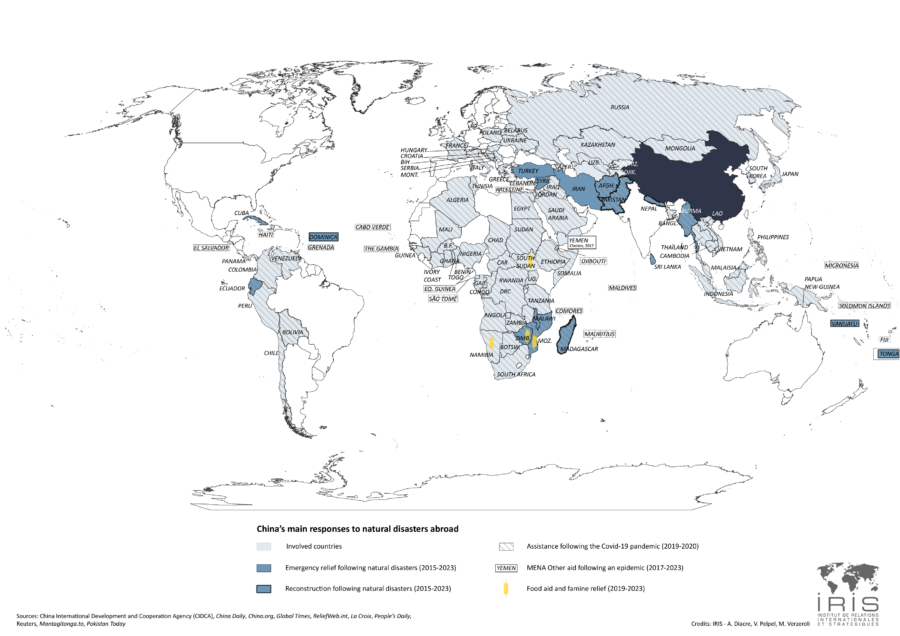China and climate change: a quest for ecological influence and power
This note on China’s quest for influence and ecological power in the face of climate change is divided into three parts: the first looks at the use of climate information for political and diplomatic purposes; the second looks at the economic leadership that China is seeking to develop in the context of climate change mitigation and adaptation; and finally, the third looks at China’s use of HADR (Humanitarian Assistance and Disaster Response) operations as a tool for influence and military power.

Over the past two decades, many analysts have pointed to a process of “climatisation” in international relations (Dahan, 2018), consisting of the emergence of a global awareness of climate change and a restructuring of international discussions around the climate issue. States can no longer ignore the issue as part of their strategies for influence [1] and power [2] , which must necessarily reconcile climate responsibility with national interest.
The last two decades have also seen the rise of China as one of the world’s major economic powers. This rise has been reflected in a sharp increase in its greenhouse gas (GHG) emissions, which have led it to become the world’s largest emitter, emitting 30 % of the planet’s total GHGs [3]. By China’s growing awareness of environmental issues – in particular, the 2012 Constitution of the Chinese Communist Party introduced the concept of “ecological civilisation [4] ” – and by China’s rise to prominence in international climate talks: at COP15 in Copenhagen, China was still perceived as a blocking force in the agreements [5] , but at COP21 it became a facilitating and indispensable player in the Paris Agreement (Gemenne, 2018).
This shift in Chinese policies can be explained, at first glance, by several socio-environmental concerns. The explosion in China’s greenhouse gas emissions has led to a deteriorating air quality in China, causing more than a million deaths a year, undermining the legitimacy of the Party as a provider of public health, and making the authorities more aware of the dangers of climate change (Maréchal, 2021). But this shift was also motivated by strategic reasons, which can be summed up in three imperatives: a diplomatic imperative, consisting of positioning itself as a responsible world leader on the international stage (I); an economic power imperative, consisting of positioning itself as a key economic power, providing climate funds to the most vulnerable countries, but also supplying green energy (II) ; and finally, the need for territorial and military power, by taking advantage of the climate vulnerability of certain regions to base and upgrade its armed forces for humanitarian aid and disaster relief operations (III).
[1] A state’s ability to assert its interests in a non-coercive manner, in particular through cultural outreach mechanisms.
[2] A state’s ability to assert its interests coercively, in particular through economic and military mechanisms.
[3] Cf. International climate responsibility figures”, Appendix 1.
[4] Included in the Chinese constitution since 2000, “ecological civilisation” is said to be a civilisation based on respect for the environment and planetary limits (Monjon et al., 2021). With this concept, China intends to position itself as a leader and model for a global ecological transition (Goron. C., 2018).
[5] Until 2005, China refused any form of reduction commitment, citing arguments such as low per capita emissions in China, the absence of historical Chinese responsibility for observed climate change and the lack of technological and financial resources needed to reduce greenhouse gas emissions (Bjørkum, 2005).






